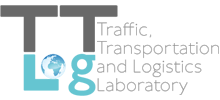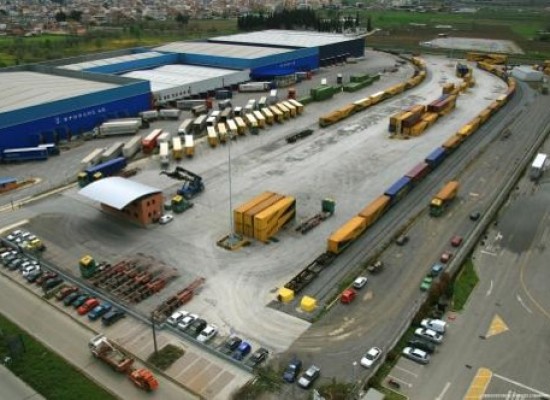Course description
Aim of the course
Freight transport is a very important parameter influencing congestion with impacts on the environment and society (security, economy, quality of life). Logistics refer to the planning, organization, management, execution and control of freight transport. Providing integrated solutions to serve the freight transport from door to door, logistics aim at optimizing the efficiency of freight transport and at reducing the negative effects arising therefrom.
The course aims to develop a clear understanding of the role and operation of freight transport and provide knowledge about systems’ analysis and solutions’ design related to the servicing of goods’ flows from the production to the consumption point and disposal or recycling and recharge of the supply chain.
Learning Objectives
The course is designed to develop scientists and professionals to deepen their knowledge and experience in designing efficient freight transport systems and logistics through updated methods and good international practices, to enhance the possibility of employment both in organizations and companies in the transport industry as well as in research / academic institutions and to empower them to achieve both the objectives of their employment entity but also to enhance their own scientific development and professional career.
Upon completion of the course, students will be:
- able to have a clear understanding of concepts related to the operation of freight transport and logistics, the legal and regulatory framework, the organization and the roles of stakeholders.
- aware of intelligent systems used to facilitate freight transport and logistics.
- able to develop methodological frameworks forecasting freight flows.
- able to analyze functional characteristics and requirements arising from the synergy of the systems involved in the freight transport and logistics.
- able to design efficient freight transport systems and logistics.
- able to assess the impacts of freight transport systems and logistics in the economy, environment and society.
- able to evaluate the efficiency of freight transport and logistics systems and contribute in the decision making process.
Contents of the course
• Introduction to freight transport systems. Concepts, legal and regulatory framework, stakeholders. Statistical data. Globalization and single transport space, competitiveness and energy efficiency of pan-European transport system, urbanization, pollution, greenhouse effect (GHG), fuels and emissions, clean vehicle technologies, environmental protection and sustainable development, renewable energy, smart pricing and taxation on the basis of the “polluter pays”. • European and national policies, trends and prospects. Action plan for the logistics sector. Action plan for road transport. Action plan for rail transport. Action plan for sea and river transport. Action plan for aviation. European initiatives: (indicative) MoS, TEN-T, COST, FPs, Marco Polo. • Logistics and supply chain. Basic concepts, definitions and procedures. Applications and examples of good practice. • Urban freight transport. Linking small and long-distance freight transport points. Applications and examples of good practice. • Intermodal transport. Transport interchanges, ports, airports, free trade zones. Governance models, privatization. Case studies: Port of Rotterdam, Manchester Airport. • Typology and classification freight centers, collection centers, sorting, distribution. Standards for consolidation centers’ development, operation and management at international level, organizational, functional and operational model. Case study: logical network configuration model of consolidation centers in Greece. • Provision of freight flows. Factors of influence, production and traction freight flows, freight flows distribution, modal choice, network’s distribution. Case study: prediction of national freight flows. • Topology optimization models. Linear and integer programming. P-median, P-center, set covering, uncapacitated fixed charge problems. Troubleshooting using SITATION. • Routing Models (CVRP, DCVRP, VRPTW, VRPB, VRPPD). Expression of vehicle flow problems or goods of partial cutting and others. • Multi-criteria evaluation. Hierarchical Analytical Process (AHP), definition of criteria, indicators, user groups. Application PROMETHEE-GAIA software.
For more information about the lectures’ program, the evaluation process, and the main and additional courses, please download course’s Manual.


